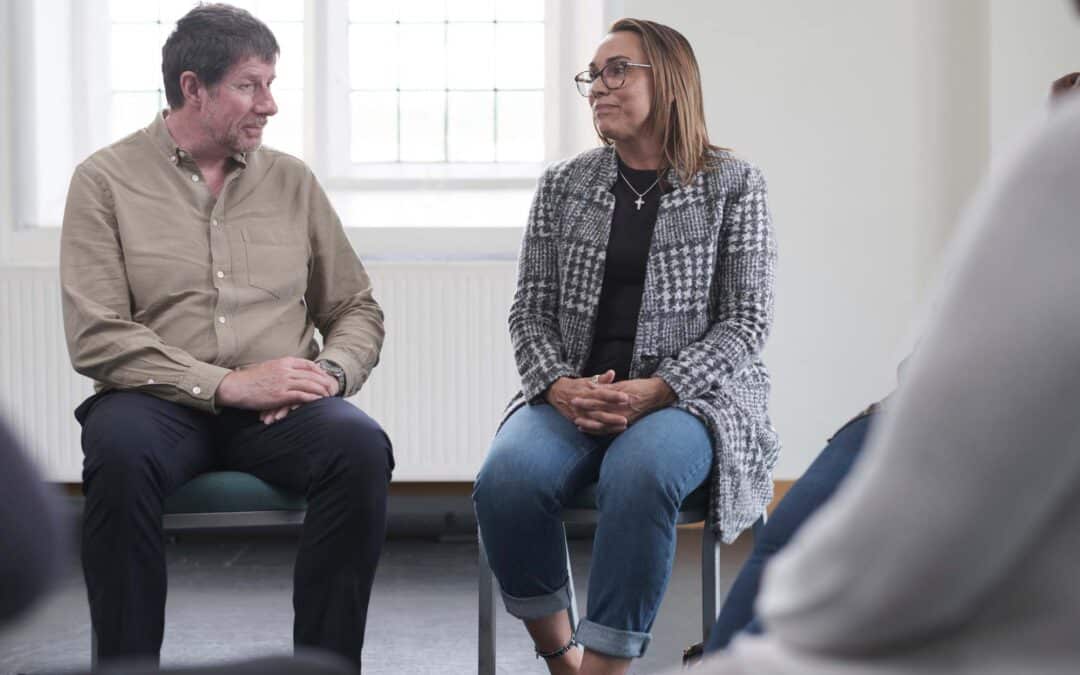Parenting is one of the most meaningful and demanding roles a person can have. But when substance use starts to impact your health, your family, or your ability to parent the way you want, the decision to seek treatment can feel overwhelming. For many parents, the question isn’t “Should I get help?” — it’s “How can I go to rehab when I have kids depending on me?”
The good news is: getting treatment and being a parent are not mutually exclusive. In fact, choosing recovery is one of the most powerful decisions you can make for your children. At Liberty Health Detox, we work with parents every day who are navigating this exact situation, and we know it can be done with planning, honesty, and support.
In this blog, we’ll walk through the real concerns parents face, practical childcare solutions, legal considerations, and how treatment can actually help families grow stronger.
Facing the Fears: You’re Not Alone
If you’re a parent considering treatment, chances are you’ve asked yourself some tough questions:
-
Who will care for my kids while I’m in rehab?
-
Will I lose custody if I tell someone I need help?
-
What will my kids think of me?
-
Is this selfish?
These are valid, common fears. Many parents feel guilt for stepping away to focus on their recovery. But here’s the truth: seeking treatment is not selfish — it’s brave, responsible, and deeply loving.
Substance use affects the whole family. When a parent gets help, it sets in motion a ripple effect that can break cycles, rebuild trust, and create a healthier home environment. Your decision to heal can be the turning point that changes everything for your children, too.
Step One: Understand What Rehab Really Looks Like
For many parents, “rehab” can sound like an indefinite stay away from home. In reality, treatment usually happens in stages, starting with detox — a short-term medical process designed to help you safely and comfortably stop using substances.
At Liberty Health Detox, detox is typically the first step toward recovery. Most detox stays last about 5–10 days, depending on your medical needs and the substances involved. This is often the most intensive part of treatment, and it lays the foundation for your next steps — whether that’s residential treatment, day treatment, or outpatient therapy.
Knowing this timeline helps parents plan childcare more realistically. You’re not disappearing for months; you’re creating space to stabilize, so you can come back stronger and healthier.
Exploring Childcare Options While You’re in Treatment
One of the most practical hurdles for parents is figuring out who will care for their children during treatment. This looks different for every family, but here are some common solutions that work:
1. Trusted Family Members or Friends
Many parents rely on a grandparent, sibling, or close friend to care for their children temporarily. This can provide emotional stability for the kids and peace of mind for you. If possible, involve your children in this conversation so they feel secure and understand the plan.
2. Co-Parenting or Shared Custody
If you share parenting responsibilities with a co-parent, consider creating a structured, temporary plan. Clear communication and legal documentation can help ensure a smooth transition and reduce stress for everyone involved.
3. Temporary Guardianship Arrangements
For parents without immediate family support, short-term legal guardianship can be a helpful option. This allows someone you trust to make decisions for your children while you’re in treatment, without risking your long-term custody. These arrangements are often simple to set up and can be reversed once you complete treatment.
4. Community and State Resources
New Hampshire offers programs designed to keep families together when parents seek help voluntarily. Local family service agencies may provide childcare assistance, temporary housing support, or legal guidance. Reaching out early can help you build a solid plan that protects your parental rights.
Tip: In many cases, courts and child protective services look favorably on parents who proactively seek treatment. Taking this step can actually strengthen your custody, not weaken it.
Choosing the Right Treatment Path as a Parent
Not every parent’s situation is the same, and neither is every treatment journey. Once detox is complete, you’ll discuss the next level of care with your treatment team. As a parent, it’s important to choose a path that balances your recovery needs with your family responsibilities.
Detox Only
For some parents, detox is a crucial reset before continuing care through outpatient therapy. If you have strong support at home and a stable environment, this may be the right choice.
Residential Treatment
Some parents choose a longer residential program after detox. While this may require more childcare planning, it often provides the deepest focus on recovery, which can lead to lasting stability for your family.
Outpatient Care
Outpatient programs can allow parents to return home in the evenings. These options are often ideal for parents who want structured support without extended overnight stays. Many families find this to be a good transition step after detox.
No matter which path you choose, the key is communication and planning. Liberty’s admissions team can help you explore options that work with your life, not against it.
Legal & Custody Considerations: What Parents Should Know
Perhaps one of the scariest unknowns for parents is how seeking treatment might affect custody. It’s natural to worry — but in most cases, seeking help voluntarily is a positive legal step.
Courts typically want to see parents taking responsible action to address substance use, especially before it affects child welfare. Entering treatment:
-
Shows accountability and responsibility
-
Demonstrates a commitment to providing a safe, stable home
-
Can prevent more serious legal issues down the line
If you’re concerned, consider reaching out to a family attorney or legal aid organization in New Hampshire. Many offer free or low-cost consultations to help parents understand their options.
How Liberty Health Detox Supports Parents
At Liberty Health Detox, we understand that addiction doesn’t happen in isolation — and neither does recovery. Many of our clients are parents who are navigating treatment while ensuring their children are safe and supported.
Here’s how we help:
-
Compassionate, individualized care: We meet you where you are, emotionally and logistically.
-
Flexible planning: Our admissions team helps you set realistic timelines for detox and beyond.
-
Clear communication: We can coordinate with loved ones and help you keep connected with your support network during your stay.
-
Transition support: We don’t just focus on detox; we help you build a sustainable recovery plan that fits your family life.
Taking the First Step Is the Strongest Thing You Can Do
If you’re a parent thinking about rehab, you’re already demonstrating courage. It’s okay to feel scared. It’s okay to not have every detail figured out. What matters is that you take the first step toward a healthier future — for yourself and your kids.
You don’t have to navigate this alone. Our team is here to listen, help you plan, and support you every step of the way.
Give our team a call today to talk confidentially with an admissions specialist. A safe, stable, and healthy future for you and your children is possible — and it starts with one brave conversation.


